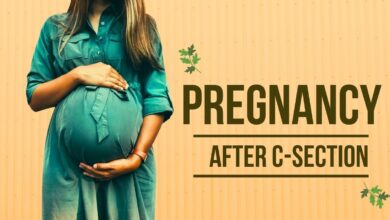Children delivered by C-section are more likely to experience ineffectiveness after a single measles vaccination: study
According to new study, compared to spontaneously born infants, children delivered by C-section may have a far greater probability of the double-dose measles vaccination not fully protecting them. When the vaccination fails to induce the generation of antibodies required to fight measles infection, the youngster becomes susceptible to the illness.

A plausible rationale for this inefficacy might be to the maturation of the baby’s gut microbiome, as research suggests that a vaginal delivery exposes the child to a broader variety of maternal bacteria, which may strengthen the baby’s immune system.
The second measles dosage also created a strong immunity against the viral illness in infants delivered by caesarean delivery, or C-section, which requires the mother to make an incision in her belly and uterus in order to deliver the baby, according to research from Fudan University in China and the University of Cambridge in the United Kingdom.
“We’ve found that the way we’re born — either by C-section or natural birth — has long-term consequences on our immunity to diseases as we grow up,” said co-senior author of the study published in the journal Nature Microbiology Henrik Salje of the University of Cambridge’s Department of Genetics.
Measles is a viral illness that mostly affects youngsters and is severe and extremely infectious.
A high temperature, cough, runny nose, and an all-over rash are possible symptoms.
According to the World Health Organization, being vaccinated with two doses is the greatest approach to prevent becoming ill and spreading the disease.
The researchers discovered that 13% of children delivered by C-section had no immunological response to their first measles vaccine, compared to 5% of individuals born vaginally. The researchers used data from earlier studies of over 1,500 children in Hunan, China.
Many kids do not get their second dose of the measles vaccination, according to the researchers, which may be harmful to both them and the general public.
“Infants born by C-section are the ones we really want to be following up to make sure they get their second measles jab because their first jab is much more likely to fail,” Salje said.
The researchers noted that as more and more women worldwide are giving birth via C-section, infants are not exposed to the mother’s microbiome in the same manner as they would be after a vaginal delivery.
“We think this means they take longer to catch up in developing their gut microbiome and with it, the ability of the immune system to be primed by vaccines against diseases including measles,” Salje said.







